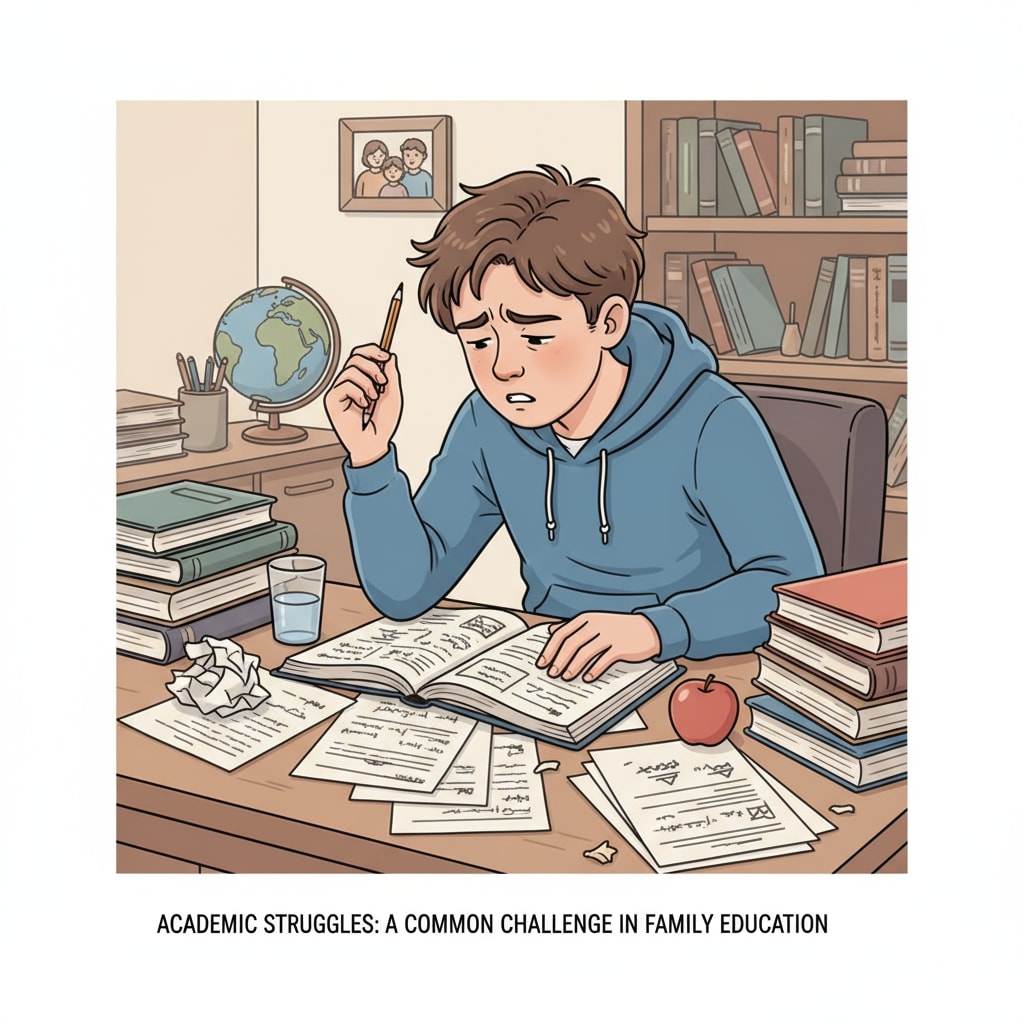In family education, academically struggling adolescents often encounter a series of problems such as self – discipline difficulties and Attention – Deficit/Hyperactivity Disorder (ADHD). These issues can significantly impact their learning and future prospects. Let’s explore how to address these challenges and help them find a new direction in education.

The Hurdles of Academic Backlogs
One of the primary issues for these adolescents is the existence of knowledge gaps. Due to various reasons in family education, they may have missed out on crucial learning content. As a result, they struggle to keep up with the current curriculum. For example, if they didn’t master basic math concepts earlier, they will face difficulties in more advanced math courses. This knowledge deficit can lead to a lack of confidence and further disengagement from learning.
The Battle with Self – Discipline
Self – discipline is another significant hurdle. In a family environment, there may be fewer structured routines compared to school. Without proper guidance, adolescents with self – discipline difficulties find it hard to manage their study time effectively. They might be easily distracted by things like video games or social media. For instance, they plan to study for an hour but end up spending most of that time scrolling through their phones. This lack of self – control hinders their academic progress.

When it comes to ADHD, it complicates the situation even further. According to the CDC, ADHD can cause problems with attention, hyperactivity, and impulsivity. Adolescents with ADHD may have trouble focusing in class or while doing homework. This makes it essential to understand and address this disorder in the context of family education.
Effective Intervention Strategies
- Create a structured study environment at home. Set specific study times and a dedicated study space to help improve concentration.
- For knowledge gaps, consider hiring a tutor or using online educational resources. Platforms like Khan Academy offer free and comprehensive learning materials.
- If ADHD is suspected, consult a professional for an accurate diagnosis and appropriate treatment plan, which may include therapy and medication.
By implementing these strategies, we can help academically struggling adolescents in family education overcome their challenges related to self – discipline and ADHD, and start to rebuild their confidence in learning. With the right support, they can find a new path towards a successful academic and future career. Readability guidance: The above content uses short paragraphs and lists to summarize key points. Each H2 section provides a list to make the information clear. The proportion of passive voice and long sentences is controlled, and transition words are used throughout the text.


